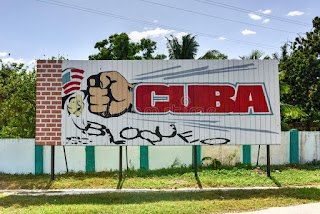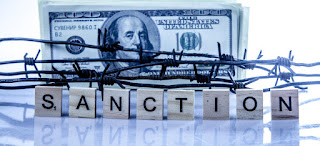By Maria Peña:
WASHINGTON – Activists lobbied on Capitol Hill Wednesday for a bill that would remove restrictions on travel to Cuba for all Americans, arguing it would be in keeping with President Barack Obama’s pledge to change U.S. policy toward the communist-ruled island.
During a meeting at the House of Representatives’ Rayburn House Office Building, several congressional leaders and more than 70 activists from a dozen states said the travel ban violates Americans’ basic rights.
Supporters of the Freedom to Travel to Cuba Act, including Democratic Reps. Charles Rangel and Bill Delahunt and Republican Congressman Jeff Flake, say Washington has tried for more than four decades to isolate Cuba economically and diplomatically without achieving the desired result.
They added that now is the time to try something different and that the bill has enough support in the House and Senate to be approved before year’s end.
The measure, submitted in March, would allow all Americans to travel to the island, not only Cuban-Americans with family members living there. Only in the event of war or imminent danger to Americans could travel to Cuba be disallowed.
While hearings on the legislation could begin next month, the proposal faces opposition from Republicans and Cuban exiles, who denounce the continued violation of human rights on the island.
In April, Obama lifted restrictions of Cuban-Americans’ travel and remittances that had been imposed by the Bush administration and allowed U.S. telecommunications companies to apply for licenses to operate in Cuba.
In an exception to the economic embargo imposed in 1962, Washington for several years has allowed the sale of U.S. farm products to Cuba. The value of those transactions averages around $500 million a year.
Some experts who took part in Wednesday’s meeting told Efe that the measures Obama has adopted thus far are limited and insufficient.
“It disappoints me that more things aren’t being done more quickly, because most Americans support a relaxation of the embargo. We have nothing to show for the embargo, which has been in place for decades,” said John Block, agriculture secretary under the Ronald Reagan administration.
“We travel to and do business with China and Vietnam. Aren’t we being hypocritical with this? We should open up trade with Cuba because this embargo is only providing the regime in Havana with an excuse” for the island’s economic woes, Block said.
For his part, Wayne Smith, who served from 1979-1982 as chief of the U.S. Interests Section in Havana, said that Obama “hasn’t done anything” and that, as a step toward change, “we should start a dialogue and lift the travel restrictions.”
“It’s disgraceful for a handful of lawmakers to block legislation when most Americans and the new generation of Cuban-Americans want relations with Cuba to improve,” Smith said.
Obama has said he will not consider lifting the embargo – imposed three years after Fidel Castro took power – unless Cuba frees political prisoners and undertakes democratic reforms.
Wednesday’s lobbying effort, described by organizers a

s an “education day for lawmakers,” comes amid a possible thaw in relations between the United States and Cuba, which have resumed talks on immigration, suspended in 2004, and are mulling the possible resumption of postal service after 46 years.
Bisa Williams, deputy assistant secretary of state for Western Hemisphere Affairs, met recently in Havana with high-ranking Cuban officials to discuss a range of issues. She visited an agricultural facility and areas affected by the three hurricanes that battered the island last year, the State Department said Tuesday.
She was the highest-ranking State Department official to visit Havana since 2002.
Leaders of Cuba’s dissident movement said Wednesday that they met with Williams during her stay on the island.
The chairman of the Cuban Commission on Human Rights and National Reconciliation, Elizardo Sanchez, told Efe that encounter took place over lunch at the U.S. Interests Section in Havana.
Miriam Leyva, founder of the Ladies in White, a group comprising relatives of political prisoners, said Williams encouraged them to express their opinions and “showed solidarity at all times.”
Among the issues discussed, Leyva said, was the plight of Cuba’s 208 political prisoners, the government’s repression of the opposition and the situation in general on the island.
Also present for the lunch were prominent dissidents Vladimiro Roca, Oscar Espinosa Chepe, Laura Pollan and Marta Beatriz Roque. EFE
laht.com



